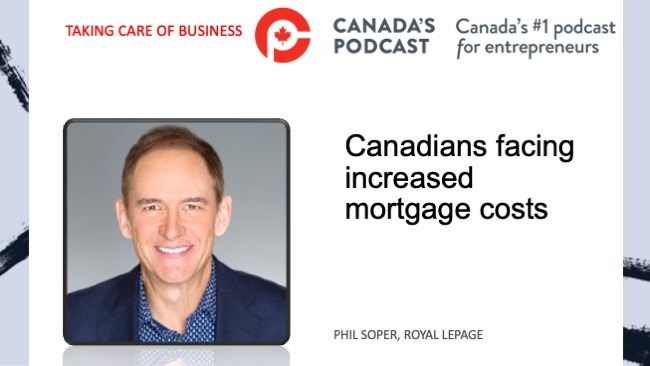The Consumer Price Index (CPI) rose 4.4 per cent year over year in April, following a 4.3% increase in March. This was the first acceleration in headline consumer inflation since June 2022. On a year-over-year basis, higher rent prices and mortgage interest costs contributed the most to the all-items CPI increase in April 2023, reported Statistics Canada on Tuesday.

Gustavo Fring
On a monthly basis, the CPI was up 0.7 per cent in April, following a 0.5 per cent gain in March. Prices for gasoline (+6.3 per cent) contributed the most to the headline month-over-month movement. Excluding gasoline, the monthly CPI rose 0.5 per cent. On a seasonally adjusted monthly basis, the CPI rose 0.6 per cent, added the federal agency.
“Gasoline prices rose by 6.3 per cent in April compared with March, the largest monthly increase since October 2022 and contributing the most to the acceleration in the headline CPI. This increase followed an announcement from OPEC+ (countries from the Organization of Petroleum Exporting Countries Plus) to reduce oil output, pushing prices higher. The switch to summer blend and an increase in carbon levies also contributed to higher prices,” said StatsCan. “Nevertheless, gas prices were 7.7 per cent lower in April 2023 compared with April 2022, when prices were higher due in part to Russia’s invasion of Ukraine. Compared with 18 months earlier, gasoline prices were 10.0 per cent higher in April 2023.
“Year over year, prices for groceries rose at a slower rate in April (+9.1 per cent) than in March (+9.7 per cent), with the slowdown stemming from smaller price increases for fresh vegetables and coffee and tea. Price increases for fresh vegetables slowed year over year in April (+8.8 per cent) compared with March (+10.8 per cent), mainly driven by lower prices for lettuce (-3.3 per cent), which have fallen from record price levels in December 2022. Similarly, coffee and tea prices increased 6.4 per cent on a year-over-year basis in April 2023 compared with 11.1 per cent in March. Moderating the deceleration were prices for fresh fruit, which increased by 8.3 per cent year over year in April, following a 7.1 per cent gain in March. The increase was led by faster growth in prices for oranges (+12.0 per cent).”
Avery Shenfeld, Chief Economist with CIBC Capital Markets, said: “Having been cut nearly in half since last June, Canada’s CPI accelerated by only a single tick in May, but the 4.4 per cent print will still be a bit of an eyebrow raiser for those counting on steady progress. The monthly 0.7 per cent gain, which was a heady 0.6 per cent seasonally adjusted, including upticks in prices for gasoline and food. Excluding food/energy, prices were up a more muted 0.3 per cent seasonally adjusted, only a tick higher than we expected. The median and trim core measures were as a result two to three ticks tamer at 4.2 per cent year on year, But another indicator, CPI excluding food/energy/mortgage interest, wasn’t as tame as it has been of late, and on a three-month annualized basis is now tracking at 3.4 per cent. Two year yields were higher after the release, as the risk of a return to rate hikes at the next MPR release can’t be ruled out, as staying on hold is now very dependent on seeing a slowdown in the labour market.”
Robert Kavcic, Senior Economist with BMO Economics, said underlying core inflation is settling in around four per cent, which is clearly still too high for the Bank of Canada’s comfort.
“With policy rates on hold at 4.5 per cent, that leaves us with slightly positive real overnight interest rates. But the ‘core’ question is . . . is that tight enough? Maybe, but we (and the BoC) will be watching how some of the more interest-sensitive sectors of the economy, and the job market, evolve in coming months.”
Claire Fan, Economist with RBC Economics, said while inflation in Canada accelerated in April, it has still on balance been easing since peaking in summer 2022.
“Early signs that the lagged impact of higher interest rates are weighing on economic growth suggest underlying price pressures should continue to ease. The BoC is expected to stay on the sideline for the remainder of the year,” she said.

Mario Toneguzzi
(Mario Toneguzzi is Managing Editor of Canada’s Podcast. He has more than 40 years of experience as a daily newspaper writer, columnist, and editor. He worked for 35 years at the Calgary Herald, covering sports, crime, politics, health, faith, city and breaking news, and business. He works as well as a freelance writer for several national publications and as a consultant in communications and media relations/training. Mario was named in 2021 as one of the Top 10 Business Journalists in the World by PR News – the only Canadian to make the list)
About Us
Canada’s Podcast is the number one podcast in Canada for entrepreneurs and business owners. Established in 2016, the podcast network has interviewed over 600 Canadian entrepreneurs from coast-to-coast.
With hosts in each province, entrepreneurs have a local and national format to tell their stories, talk about their journey and provide inspiration for anyone starting their entrepreneurial journey and well- established founders.
The commitment to a grass roots approach has built a loyal audience with over 120,000 downloads and thousands of subscribers on all our social channels and YouTube. Canada’s Podcast is proud to provide a local, national and international presence for Canadian entrepreneurs to build their brand and tell their story.





